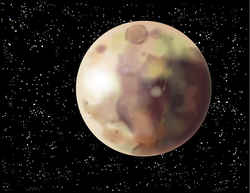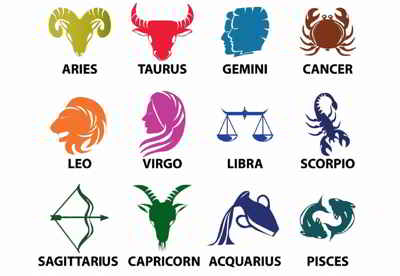Western Astrology: Modern Planets: Pluto
Pluto has rulership over Scorpio the 8th house in the natural horoscope, and is exalted in Virgo. In Roman mythology, Pluto is the god of the underworld and of wealth.

Since the invention of the telescope, Western astrology has incorporated Uranus, Neptune, Ceres, Pluto, and other bodies into its methodology. The outer modern planets Uranus, Neptune and Pluto are often called the collective or transcendental planets.
Pluto was recently named a dwarf planet and is the farthrest from the sun. Some think this discovery has lessoned Pluto’s importance in astrology. Pluto point to the different generations and what they will give to the world. Usually a sign stays in Pluto for 20- 25 years. Pluto is very far away and goes through the constellations based on our surveillance. Sometimes Pluto goes backwards for quite a long time. It will even go back to the earlier sign when on a cusp, and then forward again. Pluto was only in Scorpio and Libra recently for 10 years each. These two generations work together in a very important way and are often in each other’s lives through friendships and siblings. The fact that Pluto is the leader of the newly discovered cluster of dwarf planets supports the fact that Pluto influences a huge group of people at the same time. Pluto influences meaningfully noticable change in the world. Pluto is the planet most associated with the unconscious, sex and death. It is also related with rebirth. All things spiritual and occult are in the domain of Pluto. Pluto rules the Sign of Scorpio.
Western Astrology: Modern Planets: Pluto
Pluto |
|

Pluto is the god of the Underworld or Wealth and is a transpersonal or generational planet, which relates to how a generation will transform itself and how that relates to an individual's transformation. The alchemy symbol was given to Pluto on its discovery, three centuries after Alchemy practices had all but disappeared. The alchemy symbol can therefore be read as spirit over mind, transcending matter. The symbols were chosen given the close association with Mars which has a similar symbol. No element has been assigned to it, although it is believed made up of 98 percent nitrogen ice.
Pluto is a dwarf planet in the Kuiper belt, a ring of bodies beyond Neptune. It was the first Kuiper belt object to be discovered.
Radius: 736 miles
Discovered: February 18, 1930
Gravity: 0.658 m/s?
Discoverer: Clyde Tombaugh
Orbits: Sun: 248 years to make a full circuit of the zodiac, but its progress is highly variable: it spends between 15 and 26 years in each sign.
Moons: Charon, Nix, Hydra, Styx, Kerberos
Astrologically, Pluto is called "the great renewer", and is considered to represent the part of a person that destroys in order to renew, through
bringing buried, but intense needs and drives to the surface, and expressing them, even at the expense of the existing order. A commonly used
keyword for Pluto is "transformation". It is associated with power and personal mastery, and the need to cooperate and share
with another, if each is not to be destroyed. Pluto governs big business and wealth, mining, surgery and detective work, and any enterprise that
involves digging under the surface to bring the truth to light. Pluto is also associated with Tuesday, alongside Mars.
Pluto represents extreme power and corruption; the discovery of Pluto in 1930 coincided with the rise of fascism and Stalinism in Europe, leading
to World War II. It also coincided with the Great Depression and the major proliferation of organized crime in the United States.
Its entry in Cancer in 1913, the sign in which it was later discovered, coincided with World War I. It is also associated with nuclear armament,
which had its genesis in the research of the 1930s and 40s. Later on, it gave rise to the polarized nuclear stand off of the Cold War, with the
mass consumer societies of the United States and other democracies facing the totalitarian state of the USSR. The discovery of Pluto also
occurred just after the birth of modern psychoanalysis, when Freud and Jung began to explore the depths of the unconscious.
In real life events and culture, Pluto has been a major astrological aspect. When it comes to art, movements like Cubism and Surrealism began to
de-construct the "normal" view of the world. In medicine, Pluto is seen to be associated with regenerative forces in the body involving cell
formation and the reproductive system. The majority of traditional astrologers do not use Pluto as a ruling planet, but do use
the planet for interpretation and predictive work, obliquely making reference to projections of influences from higher to lower dimensional
spaces. Pluto is considered by modern astrologers to be the primary native ruler of the eighth house.





